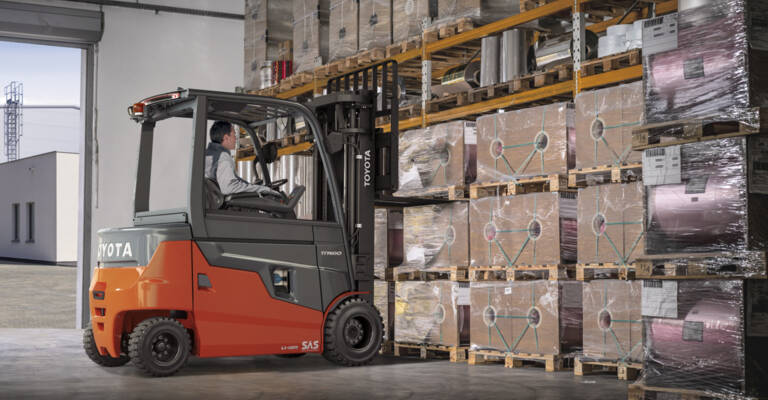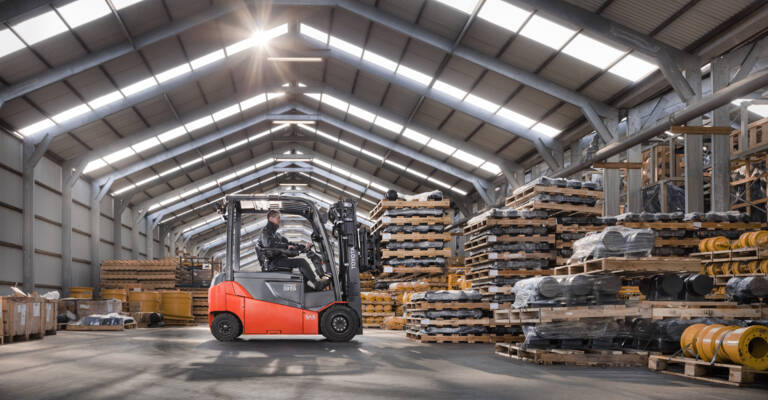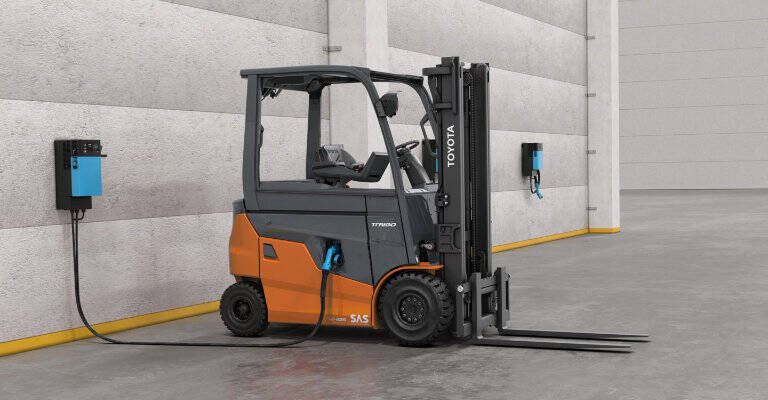Forklift users are taking the sustainable option
A clear shift towards electric forklifts

Historically, the forklift market has been divided circa 60-40 between LPG- or diesel-powered internal combustion (IC) engine trucks and battery-driven electric models – with diesel being the most dominant fuel.
But we are seeing a clear shift away from diesel and LPG towards electric forklifts as worries over the impact of IC engine emissions on both workers’ health and the environment prompt more and more truck users to migrate to environmentally –friendly electric-power when the time comes to upgrade their truck fleet.
Toyota’s latest range of electric counterbalance forklifts are offered with a choice of lithium-ion, lead-acid or hydrogen fuel cell power solutions.
Ensuring environmental and social responsibility

With today’s consumers drawn to brands and products that are seen to be environmentally and socially responsible, sustainability is becoming embedded within the strategic business plan of more and more companies.
Designed for both indoor and heavy-duty outdoor applications, lithium-ion powered Traigo80’s will operate continuously during multiple shifts at most sites without a battery change - saving the cost of additional batteries and battery changing equipment.
For example, a new Traigo80 equipped with a small lithium-ion battery can work a full 8-hour shift, with just two 15-minute charging breaks during the main operating periods, and 45 minutes of additional charging during the mid-shift meal break.
Make the shift: Traigo80
Peak performance in the harshest environments

Sam Gray, Sales Training and Product Development Manager, Toyota Material Handling UK, comments: “The launch of Toyota’s new Traigo80 counterbalance range means companies that run the most intensive indoor or outdoor operations or whose applications demand trucks that deliver peak performance in the harshest environments, can make the transition to emission-free electric- powered forklift technology with no compromise on reliability or durability.
“Toyota Material Handling is committed to sustainability across its business and this new range of electric trucks has an important role to play in reducing the environmental impact of all companies that rely on forklifts within their business – from single truck users to the biggest fleet operators.”
